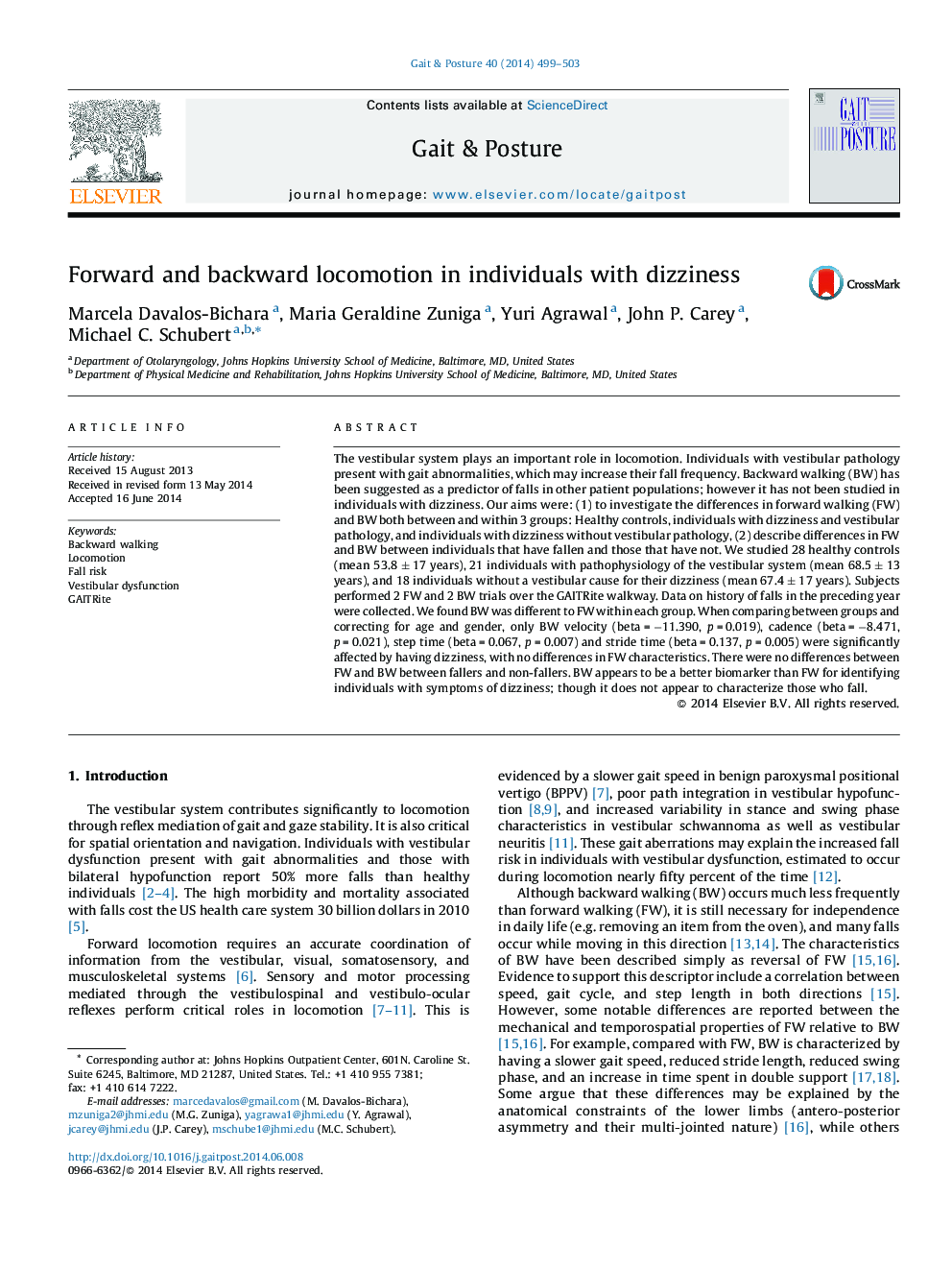| کد مقاله | کد نشریه | سال انتشار | مقاله انگلیسی | نسخه تمام متن |
|---|---|---|---|---|
| 6205908 | 1603853 | 2014 | 5 صفحه PDF | دانلود رایگان |
- The symptom dizziness has an impact on backward walking, but not on forward walking.
- Velocity, cadence, step and stride time while walking backwards are worse if patients are dizzy.
- The perception of dizziness, not vestibular pathophysiology, is a greater contributor to abnormal gait.
The vestibular system plays an important role in locomotion. Individuals with vestibular pathology present with gait abnormalities, which may increase their fall frequency. Backward walking (BW) has been suggested as a predictor of falls in other patient populations; however it has not been studied in individuals with dizziness. Our aims were: (1) to investigate the differences in forward walking (FW) and BW both between and within 3 groups: Healthy controls, individuals with dizziness and vestibular pathology, and individuals with dizziness without vestibular pathology, (2) describe differences in FW and BW between individuals that have fallen and those that have not. We studied 28 healthy controls (mean 53.8 ± 17 years), 21 individuals with pathophysiology of the vestibular system (mean 68.5 ± 13 years), and 18 individuals without a vestibular cause for their dizziness (mean 67.4 ± 17 years). Subjects performed 2 FW and 2 BW trials over the GAITRite walkway. Data on history of falls in the preceding year were collected. We found BW was different to FW within each group. When comparing between groups and correcting for age and gender, only BW velocity (beta = â11.390, p = 0.019), cadence (beta = â8.471, p = 0.021), step time (beta = 0.067, p = 0.007) and stride time (beta = 0.137, p = 0.005) were significantly affected by having dizziness, with no differences in FW characteristics. There were no differences between FW and BW between fallers and non-fallers. BW appears to be a better biomarker than FW for identifying individuals with symptoms of dizziness; though it does not appear to characterize those who fall.
Journal: Gait & Posture - Volume 40, Issue 4, September 2014, Pages 499-503
